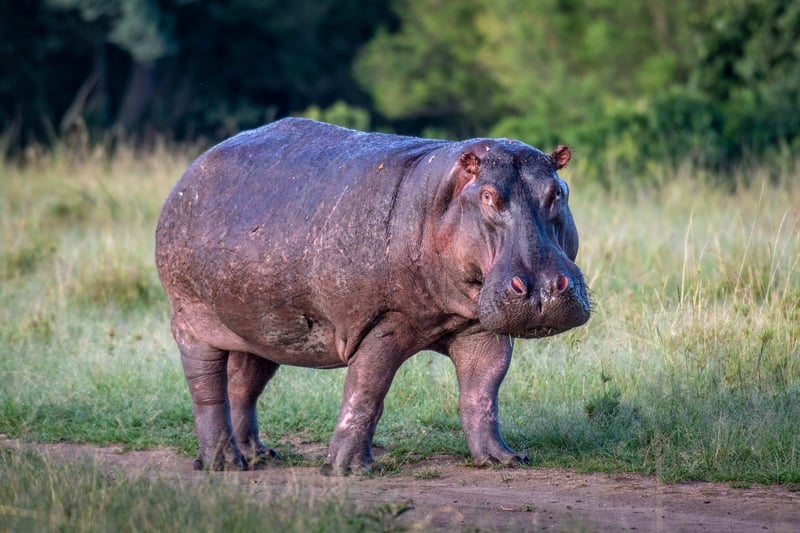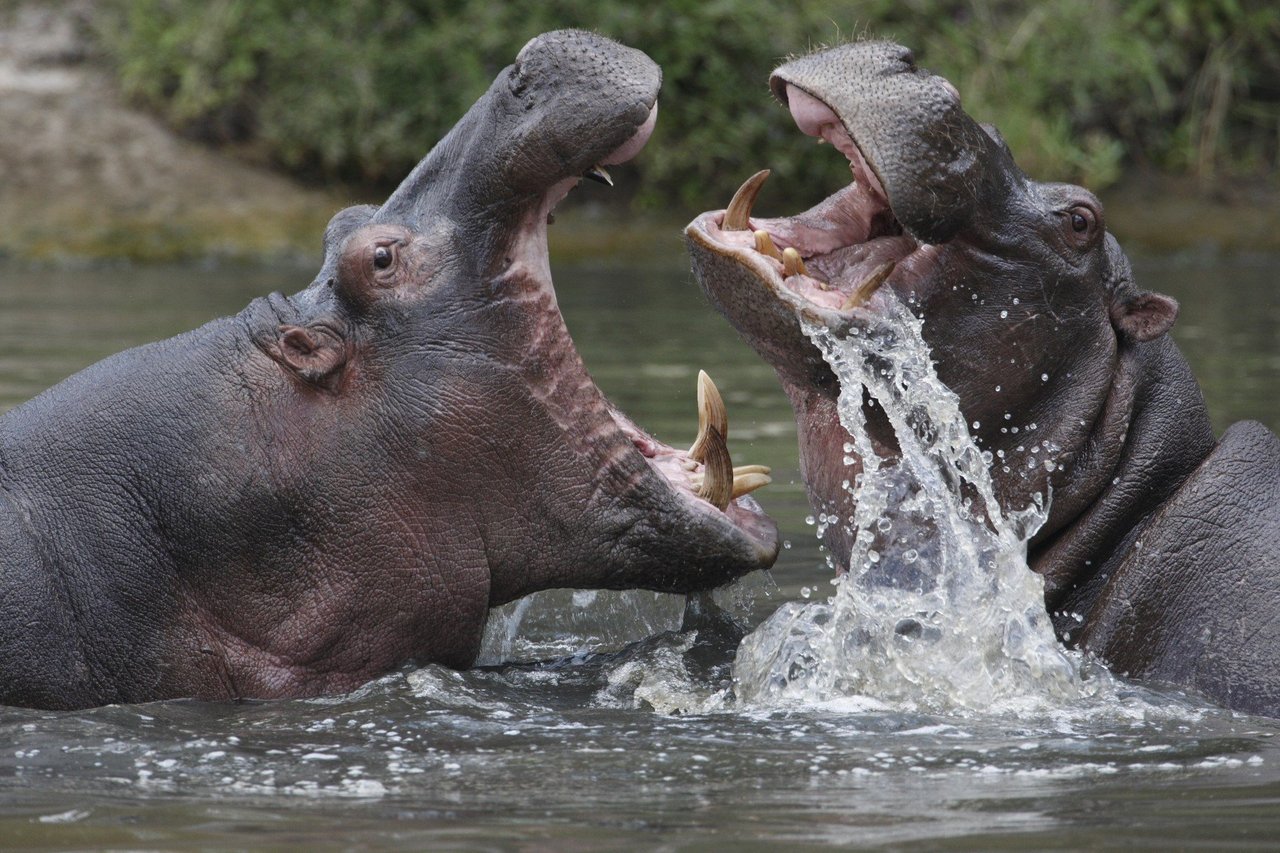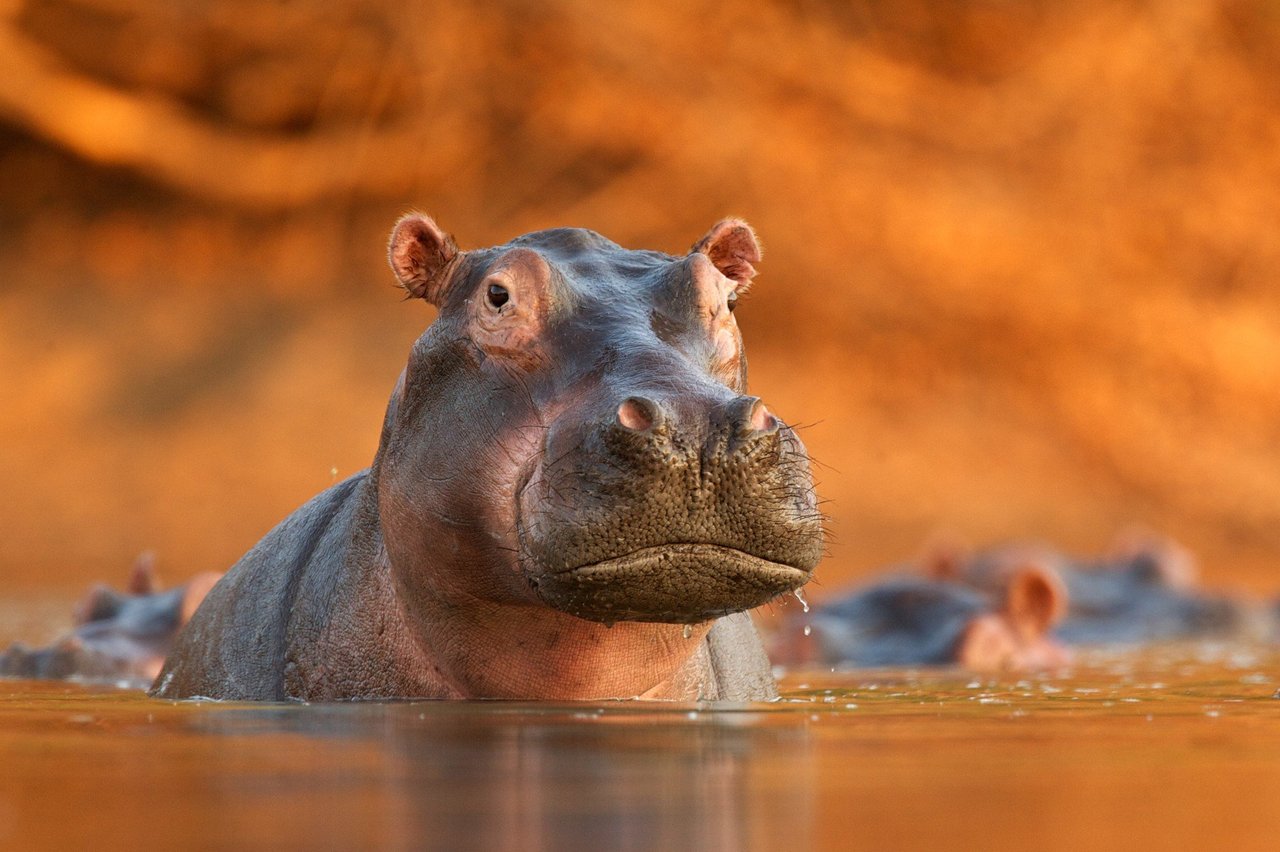
Uncover amazing hippo facts! Explore their behavior, habitat, diet, and unique traits and learn something new about hippos.
Learn some fun facts about these beautiful animals!
1. Hippos are the third largest mammals on Earth
Native to Africa, hippos are the third largest land mammals. Elephants and White Rhinos are the two largest land mammals.
2. There are two species of hippopotamids
The most widely-known species of hippopotamus is the common hippopotamus, or Hippopotamus amphibius. These hippos can measure six to 16 feet long. The pygmy hippo, or Choeropsis liberiensis, a smaller species of hippopotamus, is an average of five feet long.
3. Hippos thrive underwater
Hippos can hold their breath for an average of 5 minutes. That’s long enough to take walks along lakebed and riverbed floors. No wonder their nickname is the “river horse”!
4. Hippos are a vulnerable animal
According to the IUCN Red List, hippos are classified as “vulnerable” due to human activity impacting their environment.
5. Hippos are herbivores
Hippos are herbivores, meaning they fuel their bodies with plants! Hippos eat, an average of 80 pounds of grass each night.
6. The gestation period of a hippo is 243 days (eight months)
Baby hippos are called calves, and they weigh between 30-50 pounds when they’re born.
7. Hippos are most active at night
While not considered nocturnal, most hippos’ foraging and activity happen during the night. They leave their resting waters near dusk and return in the morning.
8. They produce their own sunblock!
Hippos live in sub-Saharan Africa, where the sun’s UV rays are incredibly strong. Hippos have adapted the ability to produce a red, oily liquid that acts as a natural sunblock.
9. Hippos can identify friends from enemies
Fascinatingly, hippos can identify a friend from a foe by smelling their dung–or poop! Hippos use middens, or outdoor areas where they repeatedly go to the bathroom. Hippos can then sniff the area to find out who’s been there, and if they’re considered a friend.
10. Hippos serve an integral role in their ecosystems
A hippo’s enormous size lends itself to creating microhabitats for smaller organisms. They facilitate habitats for fish populations by repeatedly walking on common pathways from water sources to inland areas.
Hippos are not listed as endangered but are considered vulnerable to extinction. Hippos are facing poaching and habitat fragmentation at a staggering rate. The leading causes of habitat fragmentation are natural disasters driven by human activity and climate change. Factory farming is a major culprit in greenhouse gas emissions and a primary driver of climate change. You can help hippos, and other animals, by lessening your meat consumption and carbon footprint on Earth.


